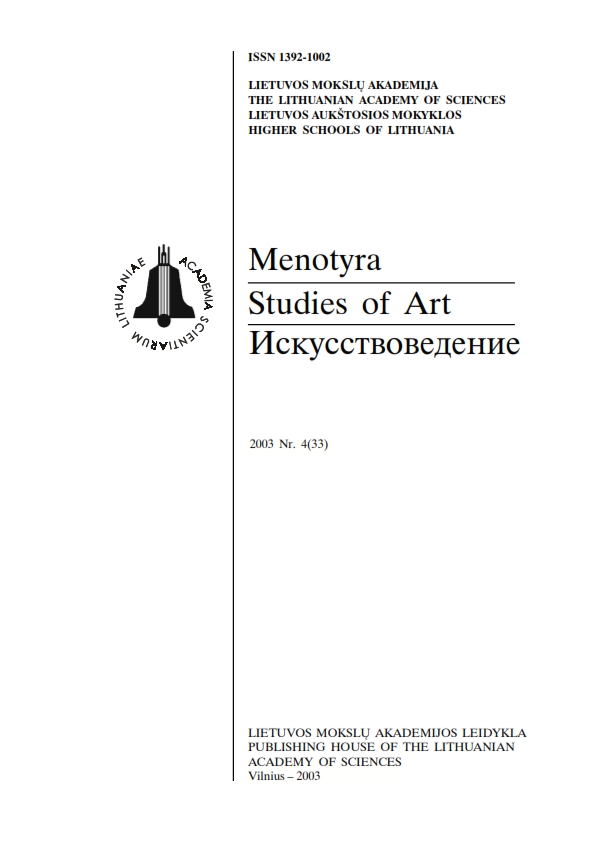Henrikas Kačinskas ir Michailas Čechovas
Henrikas Kačinskas and Mikhail Chekhov
Author(s): Ramunė BalevičiūtėSubject(s): Theatre, Dance, Performing Arts
Published by: Lietuvos mokslų akademijos leidykla
Summary/Abstract: Henrikas Kačinskas appeared in all the three performances directed by Mikhail Chekhov in the State Theatre in 1932 and 1933: he played the title role in William Shakespeare's Hamlet, Malvolio in The Twelfth Night and Chlestakov in Nikolay Gogol's Revizor (The Inspector General). Chekhov started giving his lessons to the actors of the State Theatre in August of 1932, and the first performance of Hamlet was presented on October 11 of the same year. Already from the first training sessions Chekhov trained in actors the inner flexibility or, in his words, "jugglery", and encouraged them to fill every role with inner energy. His central idea was to merge two actors in one role - the exterior and the interior one; in other words, he sought to combine a deep psychological analysis and an expressive character. Chekhov's lessons had a crucial effect on Kačinskas' further development as an actor. It may be said that in terms of their artistic nature they were twin souls. They both were prone to vivid stage transformations and the path suggested by Chekhov, i.e. combination of an expressive - sometimes even too sharp - scenic form with maximum psychic tension and consistent logic was accepted and assimilated by Kačinskas like by no other actor of the State Theatre. The rest of the troupe was unable to master the stylistics dictated by Chekhov; most probably that is why the grotesque solution of The Inspector General collapsed. Although Chekhov's lessons were very important to Lithuanian actors, his method of "explosive" theatricality was unacceptable to most of them, partly due to the lustiness of old traditions and habits. Nevertheless, his efforts to develop sensitivity and simultaneously strictness towards the characters represented (not to mention the drastic destruction of role specialization) and his teaching to understand one's own body - the only and the central instrument of the actor - had a significant impact. In addition, it was important that Chekhov sought to broaden and enrich the approach towards the art of acting and to demonstrate different directions for the actor's self-preparation.
Journal: Menotyra
- Issue Year: 2003
- Issue No: 4(33)
- Page Range: 18-23
- Page Count: 6
- Language: Lithuanian

